#reports
Kelley Blue Book's 'Best Resale Value' Awards Goes Carless for 2019
Until subscription services irreparably modify what constitutes “owning” a car, resale value will continue being an important consideration when shopping for a new vehicle. Every dollar you can squeeze out of your vehicle down the road is one you don’t have to hand over at the dealership.
Every year, Kelly Blue Book compiles a list of models occupying the top spots of the resale value charts, and, every year, we’ve watched as passenger cars are gradually replaced by pickups, crossovers, and SUVs. Last year, the Subaru WRX was the only sedan to break into the top 10. However, this year’s KBB list is entirely devoid of cars.
How Would Dealers Rate Their Brand? Scorecard Ranks Winners and Losers
Cox Automotive, in conjunction with Automotive News, just released its Retail Brand Scorecards Study for 2018. The survey is interesting in that it ranks the perceived value of automakers by assessing how desirable they are to dealerships via an A-through-F grading system. Though, as engaging as it might be to look at these traits from a highly specific viewpoint (how dealerships see you in relation to specific manufacturers), we’re not sure how useful the average consumer will find them. Dealers and industry geeks, however, may want to take notice.
“This study represents a comprehensive review of brands from a unique perspective — how well they support the success of dealers,” said Cox Automotive Chief Economist Jonathan Smoke. “As we assembled the data and began to see how the brands performed differently, we started looking at the results as grades in high school, where the most well-rounded and high-achieving students are those who perform well across a wide range of disciplines. With that scorecard framework, we found a clear set of brands that are honor-roll worthy, as they are in essence the hardest-working, most successful students.”
Dealer Advisor: Prepare for the Worst or Be Destroyed Over the Next Two Decades
Dealership advisory firm Presidio Group has painted a very bleak picture for its clients. With analysts predicting a downturn in auto sales, the company recommends dealers establish a robust 20-year plan that will enable them to perform in the new climate or get out of the business entirely.
Brodie Cobb, founder of Presidio Group, cites a glut of studies claiming dealerships will struggle as manufacturers shift into mobility companies and alternative modes of transportation are more broadly encouraged.
“We’re not particularly pleased that the world is changing the way it is. We would rather have it stay the same, because owning dealerships is a very nice return and profitable business that we enjoy very much,” Cobb told Automotive News in an interview. “So when we talk about this, it hurts us, too. We, too, need to understand the future, form a plan and not just put our head in the sand and hope it goes away.”
Why Are Fatal Hit-and-run Accidents At an All-time High?
Roadway fatalities have been on the decline relative to population since the 1970s. However, the safest year on record since car ownership became commonplace was actually 2014. Deaths spiked in the following two years, with a very modest decline in 2017. While some of the increase can be attributed to more people driving more miles than ever before, accounting for both elements still results in a higher overall rate of fatal incidents.
Hit-and-run statistics mimic this trend, with 2,046 pedestrian deaths reported in 2016. It’s not the total number that’s alarming — it’s the rate of increase, too. The AAA Foundation for Traffic Safety now claims hit-and-run fatalities are becoming a serious issue; reported incidents within the United States have seen a 60-percent increase since 2009. In fact, they’re the highest they’ve been since the NHTSA started keeping track in 1975.
AAA: New Safety Tech Effectively Doubles Cost of Minor Repairs
Advanced safety tech may save your skin, but it certainly won’t spare your wallet in the event of a minor accident. According to research from the American Automobile Association, replacing and/or recalibrating the sensors needed to allow modern driving aids to function properly are severely inflating the cost of even minor repairs.
Unfortunate, considering features like blind spot monitoring and automatic emergency braking are cropping up as standard equipment on even the most affordable rides. Car ownership continues to get more expensive and there doesn’t seem to be much we can do about it — with one exception.
Americans Suffer in Consumer Reports' 2018 Brand Reliability Rankings
Consumer Reports has released its reliability rankings for automotive brands. The results, based on responses from half million of its readers, are about what you’d expect, with a few exceptions. Normally, reliability rankings don’t change all that much per annum. However, this year’s tally saw some surprising slippage from domestic brands that had performed rather well over the past few years.
The biggest loser was Buick, which fell 11 spots in 2018. CR attributed it to lackluster performance from the redesigned Enclave. Owners cited repeated issues with its new nine-speed transmission and claimed the rest of the brand’s fleet was middling at best. Buick now occupies 19th place, or slightly below average. On the flip side of things, Mazda shot up 9 spots to occupy a comfy position in 3rd place overall. While minor HVAC issues continue to plight the CX-3, the outlet suggested that the rest of its lineup has gotten its act together.
Higher Risk: Study Claims States That Legalized Marijuana Have More Traffic Accidents
The Insurance Institute for Highway Safety and the Highway Loss Data Institute announced Thursday that auto crashes in states with legalized recreational marijuana have increased 6 percent. Both groups will be on hand at the Combating Alcohol-and Drug-Impaired Driving summit at IIHS’ Vehicle Research Center in Ruckersville, Virginia to present two studies on the issue. Perfect timing, considering Canada just became the second country to legalize the substance and support for decriminalization continues to grow in the United States.
Of course, things are rarely so simple. While the IIHS and HLDI remain confident in their research, the National Highway Traffic Safety Administration claimed marijuana use was unlikely to contribute to traffic mishaps in any meaningful way back in 2015. And that’s just for starters. There is so much conflicting information on this issue, it’ll make your head spin harder than the most savage bong rip of your life, bro.
Like Manual Transmissions, Handbrakes Are Also Hurtling Towards Extinction
We’ve long bemoaned the death of the manual transmission. But with few practical advantages other than being more enjoyable to a limited subset of the population, it’s quickly (and understandably) slipping into obscurity. It’s not alone. Based on research conducted by online automotive marketplace CarGurus, the good ol’ handbrake is also rapidly losing relevance as automakers shift their focus to electronic parking brakes.
Isolating its research to the United Kingdom, CarGurus claims just 37 percent of new cars leave the factory with a traditional, mechanical brake lever. And those that still have them are typically bargain-focused nameplates like Suzuki and Dacia. Considering neither of those brands sell any models here, the number is likely even lower in the United States.
These Are the Cars With the Best Infotainment Systems, According to J.D. Power
J.D. Power and Associates is supremely interested in multimedia systems these days. In fact, in now incorporates audio, communication, entertainment, and navigation (ACEN) into its initial quality study. If an automaker wants one of J.D. Power’s tombstone-shaped awards, it now has to ensure its multimedia equipment isn’t vexing to consumers. Unfortunately, ACEN has proven the most problematic category for new vehicle owners since its addition to the annual survey three years ago.
The research and marketing firm recently decided to break out its ACEN scores to see which vehicles had the best infotainment systems. However, in this instance, what constitutes superior hardware is simply a lack of customer complaints. For J.D. Power, multimedia system quality is determined by the number of problems experienced per 100 vehicles over the first 90 days of ownership.
Since potential problems include everything from technical failures and overall features to how well the system was explained by the dealer and plain general satisfaction, decoding what makes a particular system truly bad is difficult. But a lower frequency of complains always means a better product. Which models shined the brightest?
Ford Keen on Ditching the Steering Wheel, Outlines Autonomous Vision
Ford Motor Co. recently released a 44-page report, entitled “ A Matter of Trust,” which clearly states its vision of the autonomous future the tech industry’s attempting to stuff down our collective throats. The file covers Ford’s overall philosophy on self-driving vehicles, a milestone timeline, answers frequently asked questions, and states what the company intends to do over the next couple of years.
While we applaud any automaker that takes the initiative to craft a comprehensive report detailing what they’re plotting, we can’t say we’re enthralled with what we’ve read.
A large portion of the report focuses on giving a general idea of how autonomous vehicles function, what they’ll have to cope with, and answering difficult questions in a frank and honest manner. But Ford also said it intends to launch an AV in 2021 that lacks a steering wheel or pedals. We weren’t happy hearing about General Motors’ development of a car without driver controls back in January and nothing has changed our minds since then.
Honda Odyssey Reigns Supreme in Latest Minivan Crash Test
You don’t need a family to own a minivan, it just helps avoid a series of awkward follow-up questions. However, regardless of whether you’re riding with your complete progeny or your only friend in the world, you probably hope your vehicle has your back in the event of an accident.
The Insurance Institute for Highway Safety’s small overlap crash test separated the wheat from the automotive chaff ever since its introduction in 2012. The test imagines what happens when the front corner of a vehicle collides with another vehicle or an stationary object, focusing an immense amount of energy on a small area of the automobile. It’s a worst-case scenario for the structural integrity of a model and makes for a great viewing experience, as it really does a number on the test car.
Despite fielding a rather pathetic number of vehicles, the minivan segment performed pretty well in the IIHS passenger-side small overlap front crash test on the whole. However, while no outright deathtraps revealed themselves, the group still saw some mixed results.
Autonomous Tech Won't Displace Truckers, Biased Studies Claim
Last year, the Center for Automotive Research said robotic vehicles will eventually displace professional drivers in figures that will be “certainly in the millions.” Meanwhile, Goldman Sachs predicted trucking job losses of 25,000 per month as autonomous vehicles roll out in earnest. Truckers are going to end up like pinsetters and switchboard operators — saddled with a career that have been nullified thanks to automation, until they become extinct. However, we’ve also heard there’s a lack of manpower within the industry and that’s helping spur development.
This year, a glut of new studies emerged that suggest self-driving vehicles will actually benefit truckers. Unfortunately, they all come from sources that really want you to be stoked with the technology.
Report Claims Self-driving Cars Will Make So Much Money, No One Will Care About Employment Losses
There’s been plenty of discussion about how autonomous vehicles will effectively annihilate the trucking and taxi industries. We’ve certainly discussed it — in addition to concerns that self-driving vehicles may not reduce pollution and traffic congestion as promised.
Fear not, claims a recent report sponsored by Securing America’s Future Energy. The problem of self-driving cars displacing huge numbers workers is apparently overblown when compared to the economic impact as a whole. According to the study — “America’s Workforce and the Self-Driving Future” — the loss in employment opportunities should be offset by the potential advantages in safety, cheaper transportation, mobility, air quality, and individual productivity.
The report says that by 2050, AVs will contribute between $3 and $6 trillion in cumulative consumer and societal benefits to the U.S. economy. While it’s not clear how much of that will go into the pockets of people who’ve lost their jobs, it sure sounds great in theory.
But is this really the future of autonomous transportation? And who are these wizards of analysis who tell us the future looks so damn bright?
NTSB Report Says Tesla Was Accelerating at Time of Fatal Mountain View Crash
The March 23rd death of a Tesla Model X driver in Mountain View, California prompted the National Transportation Safety Board to probe why the vehicle, driving in Autopilot mode, left its lane and collided with a concrete lane barrier on a clear day. The impact killed 38-year-old Walter Huang, an Apple engineer.
In the wake of the crash, the safety agency booted Tesla from the investigation after the automaker released details relating to the vehicle’s (and victim’s) actions in the moments leading to the crash. We now have the NTSB’s preliminary report on what happened before, during, and after the collision.
Study Claims Car Shoppers Don't Care About Swelling Fuel Prices
Average fuel prices in the United States managed to triple between the years of 1999 and and 2012. While we’ve been fortunate enough to enjoy relatively low prices at the pump over the last few years, analysts predict the current spike will continue through the summer.
However, a recent study from Kelley Blue Book suggests most new-vehicle buyers don’t give a flip about it, with consumers claiming the price surge won’t influence their vehicle purchasing decisions in the slightest.
The assumption that the cost of gas will stabilize in the fall could play a factor for some, but many respondents say the price per gallon would have to reach $4 before they became rattled enough to consider swapping to a more economical vehicle.




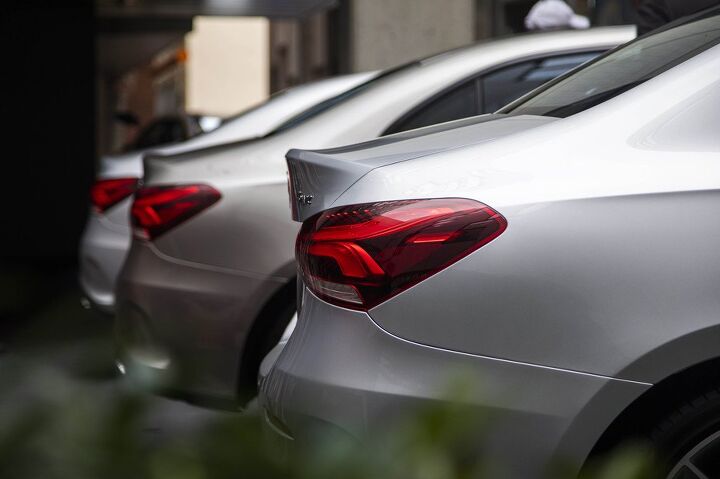
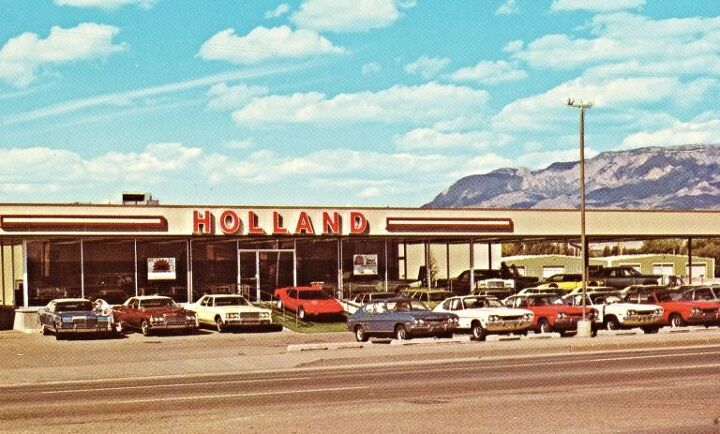


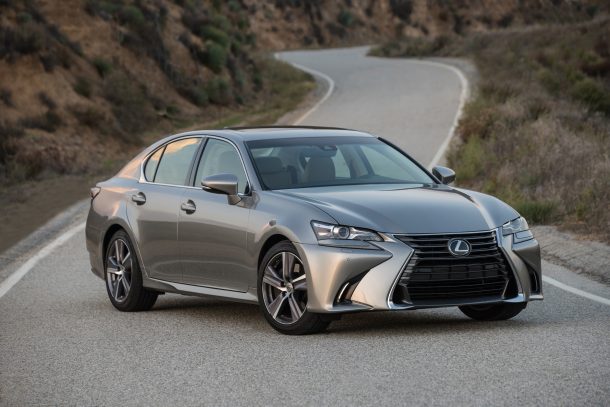


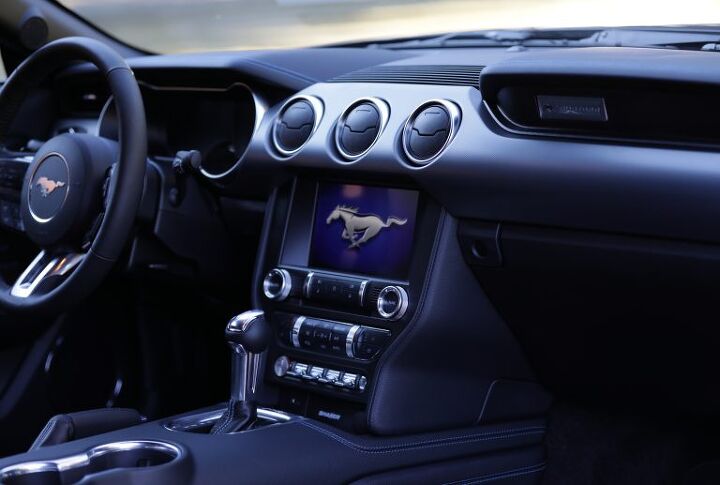
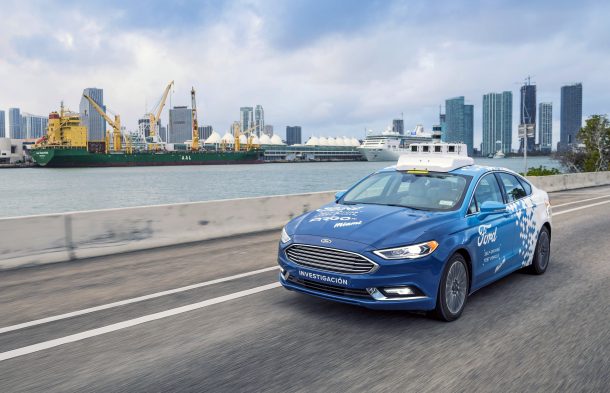
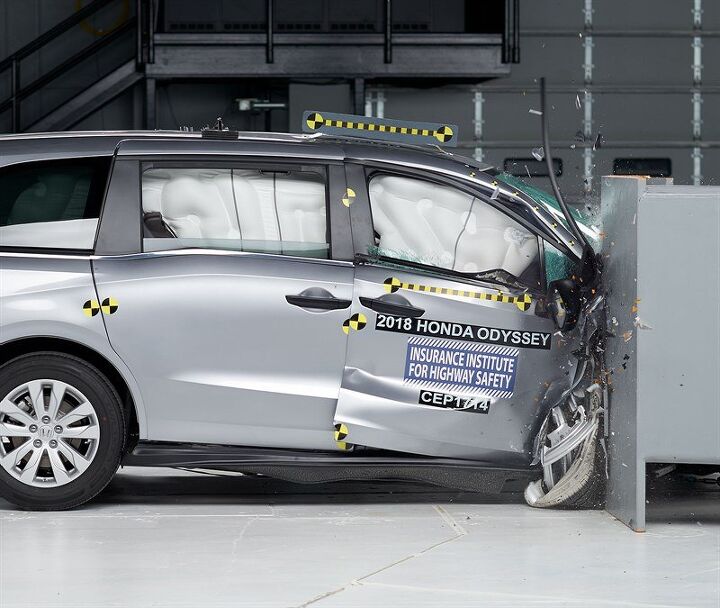

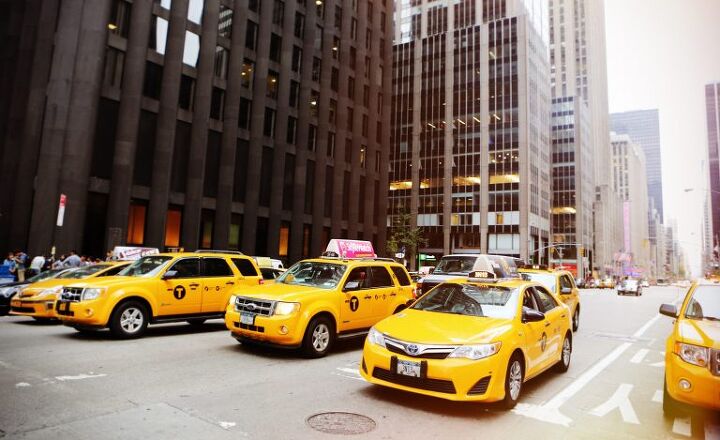

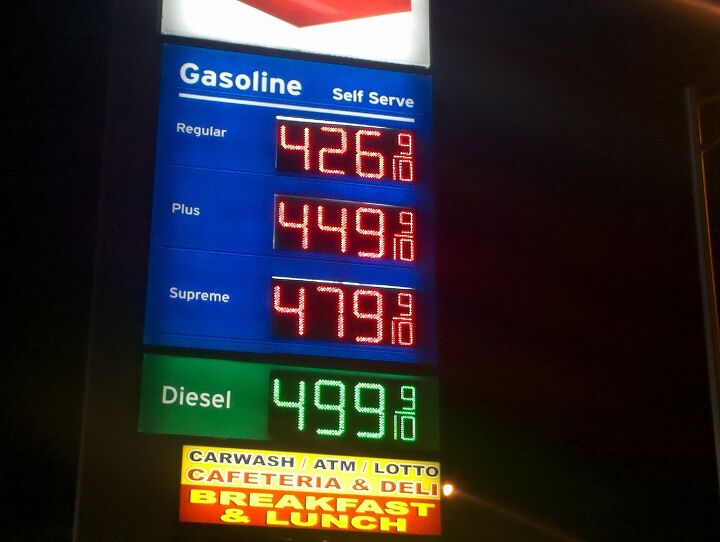











Recent Comments